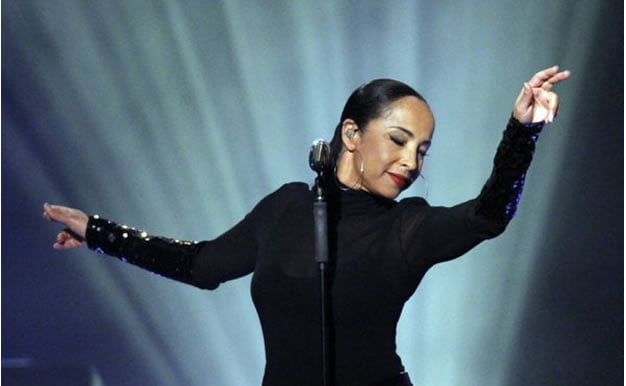When the Academy of Motion Picture Arts and Sciences announced the shortlist for the 2019 Oscars’ “Best Original Song” category, there were familiar names—Lady Gaga, Kendrick Lamar, Dolly Parton—and one that caught the world pleasantly off guard: Sade Adu. The legendary British-Nigerian singer, who had long cultivated an aura of mystery and creative selectivity, suddenly found her name alongside the most talked-about artists in film and music. It was a reminder that while she may step away from the spotlight for long stretches of time, Sade remains an unmatched voice with the power to reappear when least expected and change the conversation entirely. The recognition signaled not just her enduring artistry but also the Academy’s willingness to embrace music that blends timeless elegance with emotional weight, qualities that have defined Sade’s career for nearly four decades.
The song that earned Sade her place on the 2019 shortlist was “The Big Unknown,” featured in the Steve McQueen-directed film Widows. A heist thriller with a deeper undercurrent of grief, empowerment, and survival, the film’s tone demanded music that was both atmospheric and intimate. McQueen, a filmmaker with a keen ear for soundscapes that enrich his visuals, personally reached out to Sade to contribute a song. That she said yes was news in itself. Known for guarding her private life fiercely and for releasing music only when inspiration strikes, Sade had gone years without releasing new material. In fact, her band’s last studio album, Soldier of Love, came out in 2010, and prior to “The Big Unknown,” her only other recent recording was “Flower of the Universe” for Ava DuVernay’s 2018 adaptation of A Wrinkle in Time.
“The Big Unknown” was quintessential Sade: haunting, elegant, and deeply emotional. Built around her velvety contralto, the song unfolded like a whispered prayer, carrying both pain and resilience in every phrase. Its lyrics spoke of uncertainty, of standing at a precipice in life’s journey and confronting both fear and possibility. For McQueen’s Widows, which explored women stepping into roles of power and survival after being abandoned, the song served as both a coda and a spiritual meditation. Listeners who stayed through the credits of the film were rewarded with Sade’s voice gently lifting them from the weight of the story into a reflective space. Critics described the song as a perfect marriage of Sade’s timeless style with the film’s themes of endurance and rebirth.
When the Academy released its shortlist of fifteen songs eligible for the final nominations, Sade’s presence was celebrated widely. Social media buzzed with excitement, especially among fans who had grown accustomed to waiting long stretches for any sign of new music. To many, it was not only about the possibility of seeing Sade on the Oscars stage but also about the cultural acknowledgment of an artist who had always done things on her own terms. Her peers in the category included chart-topping pop icons, radio staples, and established Oscar veterans. Yet Sade’s entry felt special—an elegant disruption, a subtle reminder that artistry does not need to chase trends to remain relevant.
The journey of Sade Adu to this moment was itself remarkable. Born Helen Folasade Adu in Ibadan, Nigeria, and raised in Essex, England, she burst onto the global stage in the mid-1980s with her band Sade, blending elements of soul, jazz, R&B, and pop into a sound that was smooth, hypnotic, and unmistakably hers. Songs like “Smooth Operator,” “Your Love Is King,” and “No Ordinary Love” became international classics, defined by her hushed delivery and impeccable control. But just as important as her music was her refusal to conform to the demands of fame. Sade rarely gave interviews, avoided overexposure, and treated each release as a carefully considered gift rather than a product of industry schedules. This mystique only deepened the reverence with which fans and critics approached her work.
By the time “The Big Unknown” surfaced, Sade was already considered one of the most elusive figures in contemporary music. Her decision to contribute to film projects suggested a new creative chapter, one where her artistry found resonance in cinematic storytelling. It also underscored the respect she commanded among filmmakers. Directors like Ava DuVernay and Steve McQueen—visionaries in their own right—sought her voice not just for its beauty but for its ability to carry profound emotional weight. This alignment between artist and filmmaker elevated her songs beyond simple soundtrack additions; they became essential narrative components.
The significance of her inclusion on the Oscar shortlist went beyond the song itself. For the Academy, which had faced criticism for years over its lack of diversity and inclusivity, recognizing Sade was a meaningful gesture. Here was a Black woman, a British-Nigerian artist who had maintained her authenticity for decades, now being acknowledged on one of Hollywood’s biggest stages. It reflected a gradual but important shift in how the Oscars evaluated music: not simply by commercial success but by its emotional resonance and artistic contribution to the film experience.
Fans and cultural commentators alike speculated about what a nomination—and potentially a win—could mean for Sade’s career. Would it inspire her to release a new album? Would she finally return to live performances after long hiatuses? Or would she, in typical Sade fashion, quietly accept the honor and then retreat once more into her private world? The very uncertainty only added to the intrigue. Sade has always thrived in that space between presence and absence, where every appearance feels like a revelation.
What made “The Big Unknown” particularly impactful was its universality. Though written for Widows, its message extended far beyond the screen. In a world increasingly defined by uncertainty—political, social, personal—the song resonated with listeners who found themselves standing at their own crossroads. Sade’s voice, calm yet emotionally charged, became a kind of balm, offering comfort without easy answers. The Oscars shortlist, then, was not just recognition of a song tied to a film but of music that had touched people’s lives in real, profound ways.
The run-up to the 2019 Oscars was filled with speculation about which songs would make the final five nominees. Lady Gaga’s “Shallow” from A Star Is Born was already a cultural phenomenon, and Kendrick Lamar and SZA’s “All the Stars” from Black Panther carried the weight of a blockbuster moment. Against such heavy competition, some questioned whether “The Big Unknown” had the momentum to secure a nomination. Yet others argued that Sade’s track, precisely because of its understated elegance, offered a contrast to the bombast of mainstream entries. In that sense, her inclusion on the shortlist was already a victory—a moment where artistry and subtlety were recognized alongside spectacle.
Even though “The Big Unknown” ultimately did not make the final list of Oscar nominees, its shortlisting was a triumph in itself. For Sade, who had not sought awards or chased accolades throughout her career, the acknowledgment seemed like a natural extension of her artistry rather than a crowning achievement. And for her fans, it was proof that her music, no matter how rare, continued to resonate deeply across generations and mediums. The Oscars spotlight was a reminder that Sade’s voice remains timeless, capable of bridging past and present, popular culture and personal introspection.



